If you’re wondering how to collect rent from long-distance tenants, online payment systems are the easiest option. They put money in your account faster, track payments automatically, and organize everything. No wonder over half of renters prefer paying online.
The question is, which system is best for landlords in 2025? We’ll cover the top options so you can get paid without the headache.
Key takeaways
- Online rent collection is becoming the standard, with most renters preferring digital payments.
- Traditional rent collection methods like cash and checks are slow, risky, and require more effort.
- Automated rent payment systems reduce late payments, track income, and simplify bookkeeping.
- Baselane is a free, all-in-one rent collection and financial management solution that is ideal for every portfolio size.
What is a rent payment system?
A rent payment system is a tool that allows landlords to collect rent online. It replaces cash, checks, and manual bank transfers with an automated process that tracks payments and sends tenant reminders. The system deposits funds directly into the landlord’s account.
Let’s say a landlord uses Baselane (an online rent payment system). At the start of the month, the system automatically sends a reminder to tenants. The tenant logs in, pays rent with a bank transfer or credit card, and the system deposits the funds into the landlord’s account.
If the tenant is late, Baselane applies a late fee and sends another reminder, all without the landlord lifting a finger.
Traditional vs. preferred rent collection methods in 2025
Digital payments are taking over. Automated Clearing House (ACH) transfers, direct bank-to-bank payments, now make up 64.8% of rent transactions on digital platforms. Another 22.4% of renters use debit and credit cards to pay rent.
Traditional methods
Before digital payments, landlords relied on cash, checks, and money orders to collect rent. While these methods worked for decades, they have some major downsides:
- Cash: Easy to accept but hard to track. There is no record unless the landlord manually logs it. Handling large amounts of cash can also be risky.
- Checks: Tenants must write and mail them (or drop them off), which takes time. If a check bounces, the landlord must wait longer to get paid.
- Money orders: Slightly safer than cash, but still requires a trip to the bank. Tenants also have to purchase them in person, which is inconvenient.
Preferred methods in 2025
More landlords are moving away from cash and checks in favor of online rent solutions. The shift to digital payments isn’t limited to rent collection. People prefer paying bills digitally across the board. 42% of consumers now use online payment methods instead of cash or checks.
A recent Baselane survey shows how landlords prefer to collect rent in 2025:
- 54% use online rent collection platforms.
- 17% accept app payments (Venmo, Zelle).
- 15% prefer direct bank transfers.
- Only 6% still use checks or cash.
Bank transfers (ACH) are usually the most affordable option, often free or with a small processing fee. On the other hand, credit and debit card payments incur higher costs, typically 2.5% to 3.5% per transaction.
Apps like Zelle have no fees but limit transfers to around $1,000 per day and $5,000 per month, which may not cover full rent payments for many tenants. Venmo treats rent as a business transaction, adding a 3% fee.

Key features of rent payment systems
Online rent payment systems are the best way to collect rent as a landlord. Here are the key features you should look for in rent payment software:
Automated payment processing
Automation is helpful for landlords, especially those managing multiple properties. A good rent payment system should handle rent collection with minimal effort. Here’s what that looks like:
- Auto rent collection (set up recurring payments)
- Payment notifications for tenants and landlords
- Automated reminders
- Auto late fees processing
Baselane automatically tags rent payments to the right property and income category, keeping landlords organized and simplifying bookkeeping.
Multiple payment options for rental properties
A good rent payment system should offer flexibility. Tenants should be able to pay using ACH transfers, debit cards, or credit cards.
Landlords should explore various rent collection techniques to find what works best for their tenants and rental business. Some landlords prefer to charge annual rent instead of monthly payments, offering a discount for tenants who pay upfront.
Security protocols
Online rent payment options should protect landlords and tenants from fraud and data breaches. The best platforms use end-to-end encryption and 256-bit bank-level SSL encryption. Baselane, for example, partners with leading payment processors like Stripe™ and Plaid™ for safe and reliable transfers.
Payment tracking and history
A good rent payment system lets landlords see exactly where their money is at all times. It should provide:
- Real-time payment tracking
- Categorized rental payments (by property or tenant)
- Deposit tracking
- Lease details
Tracking expenses and market trends can help determine when a landlord can raise rent without losing tenants.
Mobile accessibility
Nearly one-third of mobile phone users make purchases via mobile devices. Tenants should be able to send, receive, and track rent payments from anywhere.
Benefits of using a rent payment system
A rent payment system takes the hassle out of rent collection and provides the following benefits:
Automated rent collection
It’s hard to track down rent every month, remind tenants, and wait for checks to clear. What if rent shows up in your account and is tracked automatically?
With a rent payment system, tenants set up recurring payments on a specific date each month through the landlord’s portal. The system withdraws rent automatically, notifies both parties, and even applies late fees if needed. No stress, no delays, just on-time payments.
Enhanced convenience
Tenants shouldn’t have to rush to the bank or mail a check just to pay rent. With an online rent payment system, they can pay anytime, from anywhere, using their preferred method (ACH, debit, or credit card). That’s why renters who pay online report a 77% satisfaction rate.
Some rental platforms allow landlords to generate rent rolls, certificates of rent paid, and rent verification forms.
Improved cash flow management
Everything becomes easier when you can track rent payments in real time and generate automated reports. A rent payment system helps landlords monitor income, expenses, and net cash flow without manual bookkeeping.
On Baselane, landlords can see their net cash flow, income statements, and Schedule E reporting.

Reduction in late payments
Late rent is a common problem. As of 2024, 11.6% of U.S. renters were behind on payments. A rent payment system helps reduce late rent by automating reminders and applying late fees. With features like auto-pay and payment notifications, tenants are less likely to forget their due dates.
Legal and tax compliance
Having digital records of all transactions makes tax filing easier and ensures that landlords are prepared for audits. A good system also shows that the landlord values efficiency and modern conveniences.
With Baselane, landlords can save time for themselves and their accountant by using a customizable, downloadable tax package that includes an income statement, transaction ledger, and captured receip
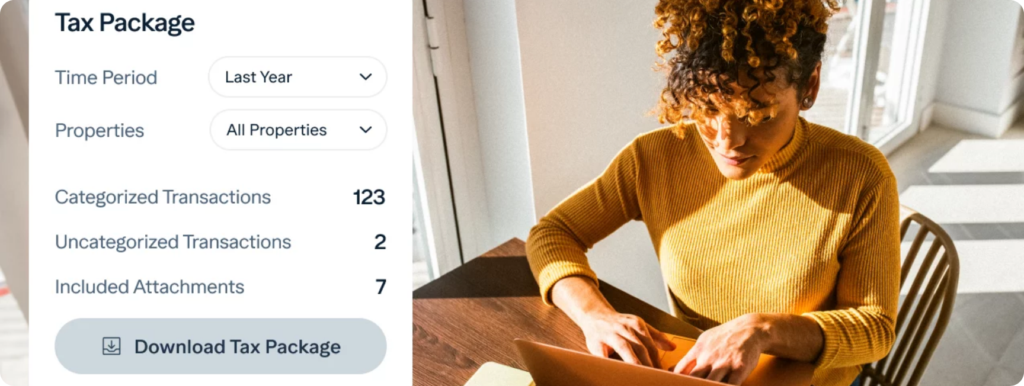
Time savings
Collecting rent manually takes time, whether meeting tenants in person, waiting for checks to clear, or making trips to the bank. Automated rent payment systems eliminate these hassles. They can process payments within 24-48 hours and keep everything organized.
Landlords who switch to digital rent collection can also save three to four hours per month that was previously spent on fillable rent ledgers and creating reports.
12 Best online rent payment systems 2025
Below are the best online rent payment systems.
Baselane
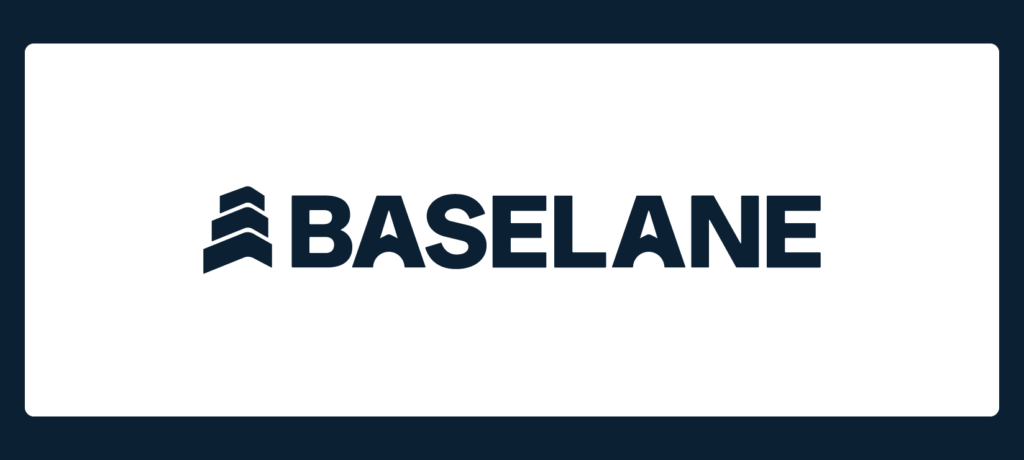
Baselane is a complete property management platform for landlords and real estate investors. It’s one of the best rent collection apps on the market. Trusted by 50,000+ real estate investors, it offers online rent collection, tenant screening, accounting, banking, and tax reporting all in one place.
With Baselane, landlords can receive payments directly into their existing bank account or open Baselane banking accounts for each property and unit to keep finances organized. With QuickPay, payouts are available as early as two days.
ACH rent payments are free when using Baselane’s banking account, and tenants who prefer debit or credit card payments pay a competitive 3.49% fee.
For landlords who want automation and organization, Baselane is one of the best choices on the market.
Key features
- Online rent collection: Collect rent via ACH (free with Baselane banking) or credit/debit card (3.49% fee for tenants).
- Automated late fees & reminders: Sends reminders and applies late fees automatically to reduce missed payments.
- Flexible payment options: ACH, debit, and credit payments are available.
- Real-time payment tracking: Monitor rent payments, late fees, and deposits in one dashboard.
- Property-Specific Banking: Receive rent payments for each property in your Baselane banking or external account.
- Security Deposit Accounts: Keep security deposits separate and track them easily within the platform.
- Automated Bookkeeping: Tracks and categorizes rental income and expenses automatically.
- Lease Management: Store and access lease agreements, track lease terms, and manage renewals.
- Tenant Screening: Run credit, background, and eviction checks directly through the platform.
- Customizable Tax Reports: Download tax-ready income statements, transaction ledgers, and captured receipts.
- Multi-Property Management: Easily track payments and financials across multiple properties and units.
- Dedicated Customer Support: Get expert assistance from Baselane’s support team for any issues or questions.
Cost
Baselane is completely free for landlords. There are no account opening fees, monthly fees, minimum balance requirements, or inactive account fees.
Best for:
Ideal for landlords with both small and large portfolios who want a complete rent collection, banking, and bookkeeping solution in one platform.
Avail
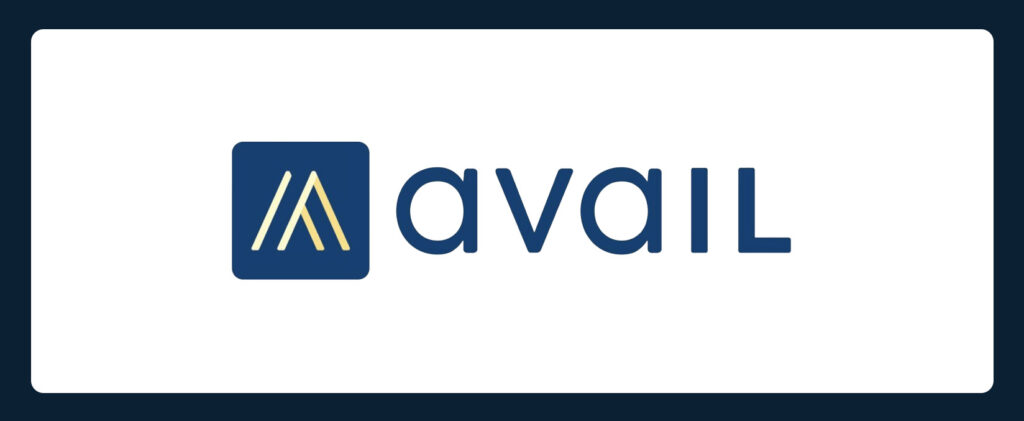
Avail is known for its rental listing features, but it also provides online rent collection, basic income tracking, and maintenance request management. As a Realtor.com-owned platform, it caters to landlords who want a mix of property marketing and rent management tools.
Key features
- Tenant screening available
- Rent analysis report is available at an additional cost
- Lease builder
- Free rent receipt
- Lets you pay rent with a debit or credit card.
Cost
Avail offers two pricing options:
- Free plan: Limited features with basic rent collection and listings
- Unlimited plus plan: $9 per month per property for advanced tools and automation
Best for:
Landlords managing a few properties who need property listings and automated rent collection, but are willing to pay monthly fees for most features.
PayPal
PayPal is a widely used online payment platform that allows users to send and receive money. Landlords can use it as a digital rental method, but it’s not specifically designed for property management.
Payments can be deposited into a bank account within 3-5 days for free, or landlords can pay a 1.75% fee for instant transfers. While convenient, PayPal lacks the automation and financial tracking tools in dedicated rent payment platforms.
Key features
- Request payments with a PayPal link
- Payments are deposited into your PayPal account
- Instant transfers between PayPal and bank accounts (1.75% fee)
Cost
- Transaction fees: For rent payments processed through a PayPal business account, the standard fee is 2.99% + $0.49 per transaction.
- Instant transfer fee: If you opt for instant transfers to your bank account, PayPal charges an additional 1.5% fee
Best for:
Landlords who need one-time rental payments or have informal rental agreements.
Venmo
Venmo is a mobile payment app that is used as an alternative rent payment method. It’s a simple option for landlords with one or two properties who prefer to handle rent payments manually.
While funds appear in your Venmo wallet instantly, landlords must manually transfer rent payments to their bank account (which can take 1-3 business days).
Key features
- Easy sign-up process
- Instant rent payments to your Venmo wallet
- Mobile-friendly interface
- Send and request money from tenants added as ‘Venmo friends’
Cost
Tenants can send rent payments using their Venmo balance or a linked bank account for free. However, landlords must manually transfer funds to their bank, which takes 1-3 business days. If you need rent money instantly, Venmo charges a 1.75% instant transfer fee (with a minimum fee of $0.25 and a maximum of $25).
Best for:
Venmo is best for landlords with only one or two properties who don’t mind handling rent collection manually.
Apartments.com
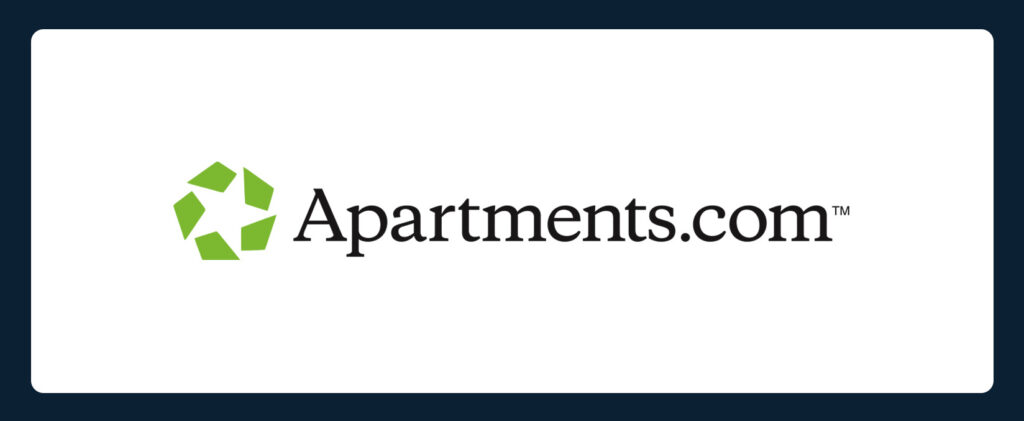
Apartments.com offers rental listing services, but it also has a basic rental property payment system, lease creation, and maintenance request management.
It’s a good option for landlords who want a listing and rent collection tool, however, it does include tenant transaction fees.
Key features
- Automatic late fees
- Automatic email reminders for tenants
- Rental application form
- Landlord payment portal
Cost
Apartments.com is free for landlords. However, tenants who pay rent with a debit card, credit card, or Google Pay will be charged a 2.75% transaction fee.
Best for:
Landlords who don’t mind using multiple platforms for financial and property management but want a rental listing service that also includes basic rent collection.
Buildium
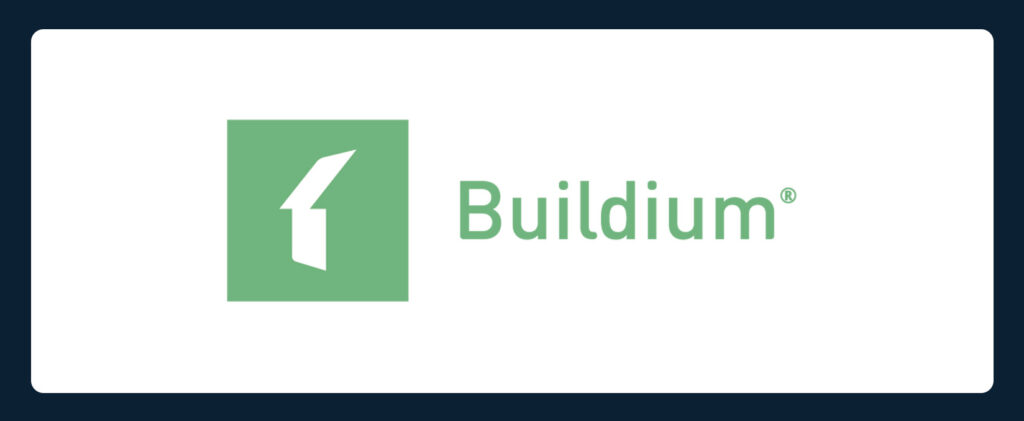
Buildium is an app designed for landlords and property managers with large portfolios. It also has a mobile app for managing rental properties.
Unlike free rent payment platforms, Buildium requires a paid account and may not be ideal for small landlords.
Key features
- Property management marketing website
- eSignature available ($5 per eSignature)
- Property inspections (Starting at $40/month)
- Live phone support (only in premium plans)
Cost
Buildium offers three pricing plans, with the cost increasing based on the number of features:
- Essential Plan: Starts at $58 per month
- Growth Plan: Starts at $183 per month
- Premium Plan: Starts at $375+ per month
The more features you need, the higher the monthly cost.
Best for:
Buildium is best for professional landlords and property managers handling larger rental portfolios. It may not be cost-effective for small landlords due to its pricing and setup fees.
Appfolio
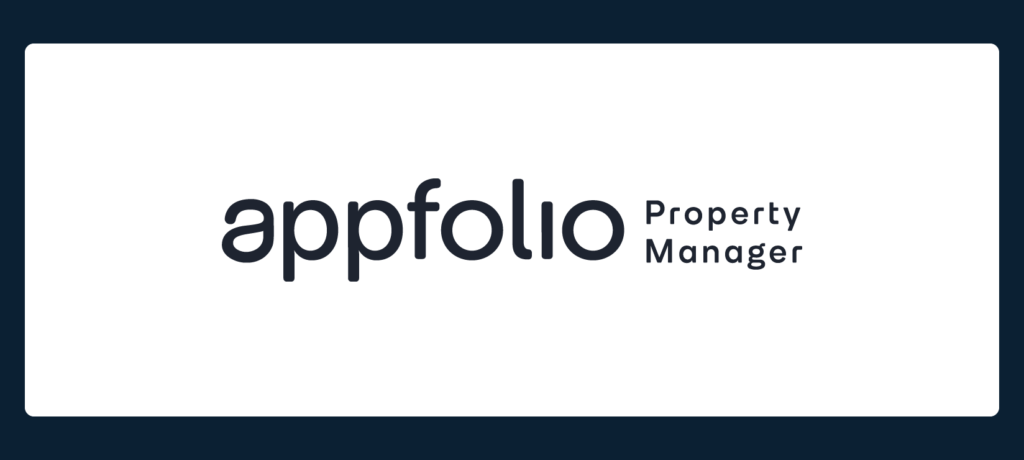
AppFolio is a rental property payment system designed for property managers with large portfolios. It requires a minimum of 50 units, making it better suited for professional property managers rather than small-scale landlords.
Key features
- Listing syndication
- 24/7 basic support available (with core plan)
- Customizable interface
Cost
Starts at $1.49 to $5 per unit per month, with a minimum monthly fee of $280.
Best for:
AppFolio is best for property managers and landlords with large portfolios that can more easily offset monthly costs.
Yardi Breeze
Yardi Breeze is designed for midsized multifamily property managers who need advanced accounting tools, including accounts payable, general ledger controls, and vendor payment support. It also includes vacancy and prospect tracking.
Yardi Breeze is one of the priciest landlord rent payment methods available in the market.
Key features
- Escrow and trust accounts for all properties
- Maintenance request tracking
- Prepare and e-file 1099s
Cost
Plans start at $1 per unit/month (minimum $100/month)
Best for:
Yardi Breeze is good for enterprise-size property management companies handling multifamily units who need advanced accounting features.
Flex
Flex is an online rent payment system that gives tenants more payment flexibility. Instead of paying rent in full at the start of the month, residents pay Flex in two payments, while Flex pays the landlord in full and on time every month.
However, it lacks basic property management features such as maintenance tracking, tenant screening, and landlord banking.
Key features
- Builds credit history for renters
- Integration with all major property management software
Cost
Flex charges tenants a $14.99 monthly membership fee for its rent payment service. Additional fees apply based on the payment method:
- Debit Card Payments: 1% fee per bill payment (no extra card processing fees).
- Credit Card Payments: 3.5% total fee for both bill payment and card processing.
Best for:
Flex is best for landlords whose renters need rent payment flexibility. It’s a good option for properties with tenants who prefer splitting payments.
TenantCloud
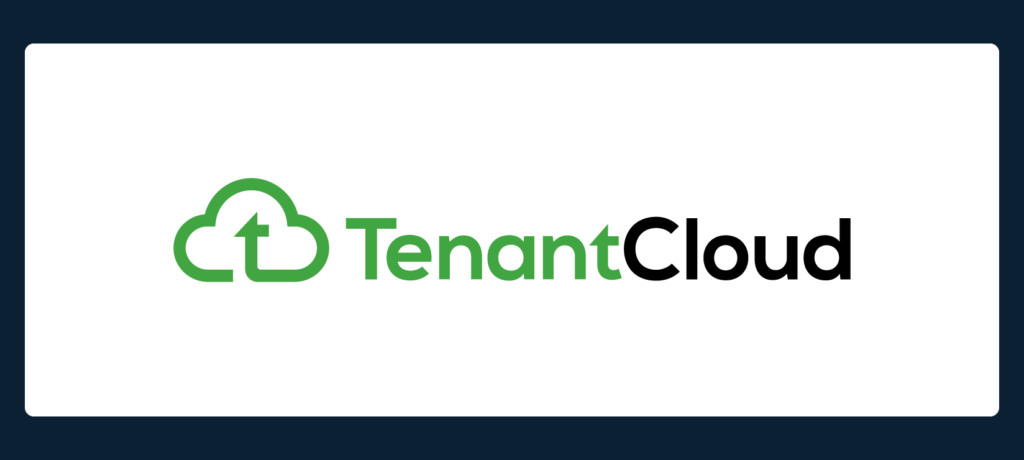
TenantCloud is a rent payment app designed for landlords managing multiple properties. It offers task management for maintenance issues, rent payments, and lease signing.
Key features
- Tenant chat and task management
- Maintenance and repair tracking
- Property listings
- Late rent notice
Cost
TenantCloud offers four pricing plans:
- Starter Plan: $16.50/month ($198 billed annually)
- Growth Plan: $32.10/month ($385 billed annually)
- Pro Plan: $55.00/month ($660 billed annually)
- Business Plan: Custom Pricing
Best for:
TenantCloud is best for landlords managing multiple properties and are willing to pay for advanced features through tiered pricing plans.
Rentec Direct
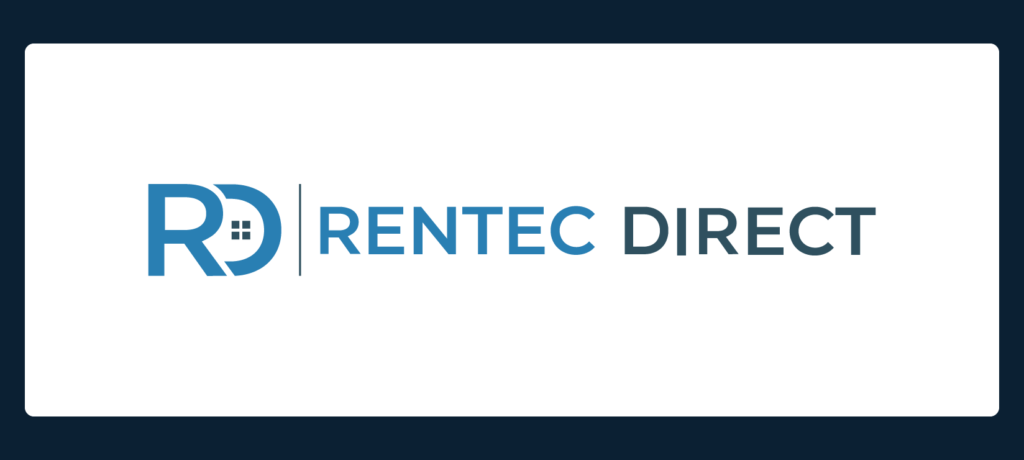
Rentec Direct is another property management software that offers electronic rent payment options. Landlords can charge tenants full or partial transaction fees for debit and credit card payments.
Tenants can also pay rent in cash through the PayNearMe network for $3.99 per transaction. However, this service requires a $200 setup fee and a commitment of at least ten monthly cash payments.
Key features
- Tenant portal available
- Market vacant properties
- Customizable income and expense reports
Cost
Cost starts at $45-$5,625+/month, depending on the number of units.
Best for:
Rentec Direct is best for landlords and property managers who want flexible rent payment options, including cash payments.
Zelle
Zelle is a peer-to-peer payment service that serves as a free rent payment system. While it’s a quick and free option for rent payments, it comes with transfer limits (typically $1,000 per day and $5,000 per month).
Unlike dedicated rent collection platforms, Zelle doesn’t offer fraud protection or refunds if money is sent to the wrong person.
Key features
- Free online rent payment for landlords
- Instant payment notifications
- Fast transfer of funds (between supported bank accounts).
Cost
Zelle itself doesn’t charge fees for sending or receiving money. Some banks or credit unions may charge fees for Zelle transactions.
Best for:
Zelle is best for landlords managing a small number of units who trust their tenants to pay on time and don’t need automated rent collection features like late fees, reminders, or lease tracking.
ProsConsNo setup requiredLimited to Zelle-supported banksNo processing fees through most banksCan’t block partial paymentsNo option to set up auto paymentNo rent tracking, payment reminders, or late fees
15 common questions landlords should ask themselves before choosing a rent payment system
Here are common questions you should ask before choosing a rent payment system.
General suitability and features
- Does this system cater to the size of my portfolio?
Small landlords may prioritize simplicity, while larger portfolios may require advanced features. - What payment methods does the system support?
Consider options like debit cards, credit cards, ACH transfers, and digital wallets. - Is the platform user-friendly for both me and my tenants?
Ease of use can significantly impact tenant adoption rates. - Does the system allow for recurring rent payments?
Recurring payments reduce late payments and improve cash flow consistency. - Can the system handle multiple properties and units effectively?
Look for scalability if you plan to expand your portfolio.
Automation and integration
- Does the system integrate with my property management software?
Integration can streamline operations by consolidating lease tracking, maintenance, and rent collection. - Does it offer automated reminders for rent due dates?
Automation can save time and ensure tenants stay informed. - Can the system generate detailed reports for tracking and tax purposes?
Detailed reporting helps with financial planning and compliance.
Tenant preferences and flexibility
- Is the system compatible with mobile devices and apps?
Tenants are more likely to pay on time if they can use mobile-friendly solutions. - Does the system offer flexible payment options for rental properties?
Consider systems that allow split payments or installment plans to cater to tenant needs. Also check wire transfer limit or debit/credit and ACH fees - How easy is it for tenants to set up and use?
A complicated setup process may deter tenants from adopting the system.
Security and compliance
- Is the system secure and compliant with relevant financial regulations?
Ensure it uses encryption and adheres to standards like PCI DSS for payment security. - Does it provide reliable record-keeping for legal and tax purposes?
Accurate records are essential for audits and resolving disputes.
Costs and fees
- What are the costs associated with an electronic rent payment system?
Look for transaction fees, subscription fees, or hidden charges that might affect profitability. - Can I pass transaction fees onto tenants, or do I need to absorb them?
Some systems allow landlords to add convenience fees for tenants paying by credit card.
How to set up a rent payment system for rental properties
Here’s how to set up a rent payment system for rental properties:
Evaluate your needs
The median U.S. landlord owns just 2 properties, and 70.2% of rental properties are owned by individual investors. Most U.S. landlords own small rental portfolios, so they don’t need overly complex or expensive property management software.
At the same time, they also can’t afford to lose time or money by sticking to outdated payment methods and bookkeeping headaches.
Choose a platform
It’s best to choose a rent payment system that automates payments, provides financial tracking, and keeps rent collection organized to save hours each month.
Baselane is an all-in-one rent collection platform designed specifically for landlords of all portfolio sizes.
Set up the system
Once you’ve chosen a rent payment platform, setting it up is the next step. Most systems follow a simple process:
- Create an account: Sign up with your chosen platform and verify your identity.
- Link a bank account: Connect your existing bank account or set up a dedicated rental income account for better financial tracking.
- Add properties & tenants: Input property details and invite tenants to set up payment preferences.
- Customize payment settings: Choose how you’ll accept payments (ACH, credit/debit card, or digital wallets) and whether to apply late fees or automatic reminders.
Communicate with tenants
The next step is to inform tenants about your new rent payment system. Many renters already prefer paying rent online, but it’s still important to explain how the system works and highlight the benefits.
Monitor performance
Once the rent payment system is in place, it’s important to track its effectiveness. Landlords should review payment reports, check for late or missed payments, and ensure tenants use the system smoothly.
Collect more rent in less time with Baselane
Rent collection shouldn’t be hard. You shouldn’t have to remind tenants every month, guess when payments will clear, or stress about late fees. You need something that keeps rent flowing, tracks every dollar, and handles the details automatically.
That’s what Baselane’s rent management system does. It automates rent collection, organizes your finances, and puts your cash flow on autopilot. Rent paid on time, every time. Make rent collection effortless. Switch to Baselane today!












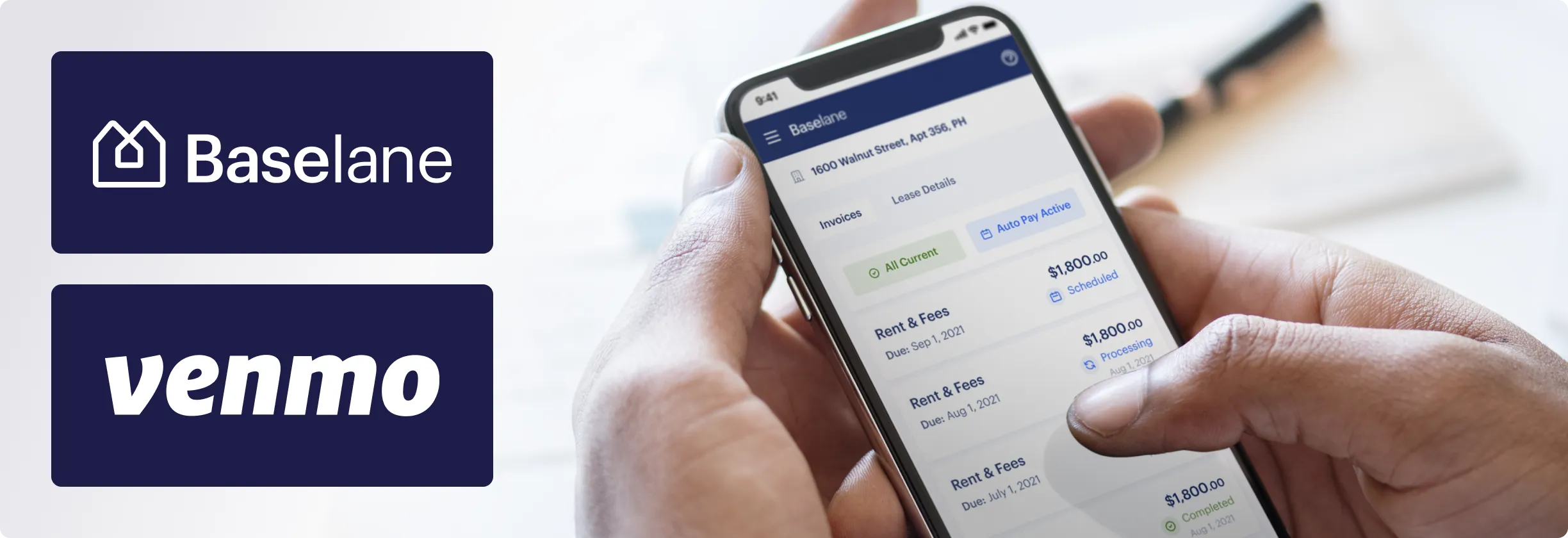


.jpg)